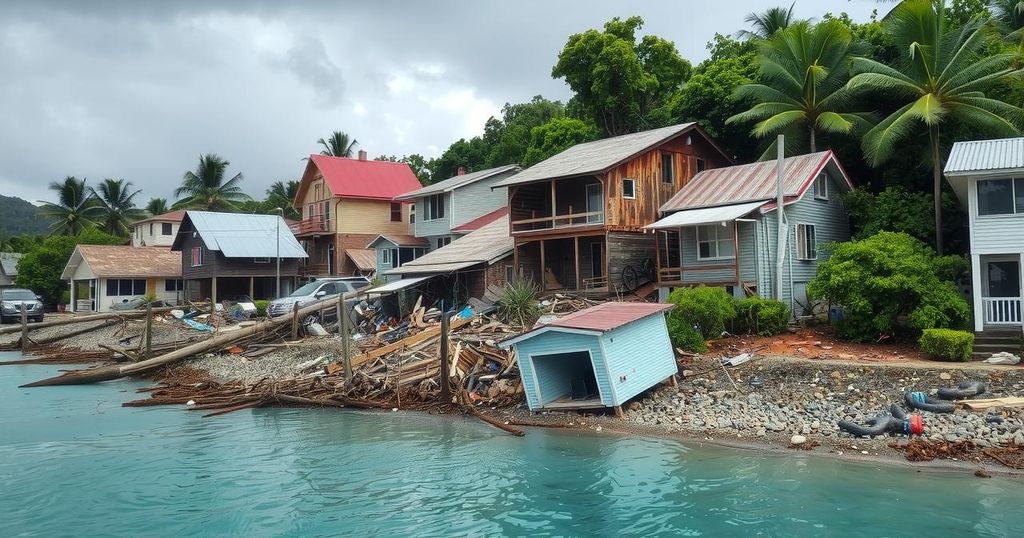Cyclone Chido has devastated Mayotte, leading to at least 11 confirmed deaths and numerous injuries. The destruction of infrastructure complicates rescue and recovery efforts, with significant impacts on the local health system and utilities. Emergency aid is being dispatched, but logistical challenges persist. The cyclone reflects broader concern over climate change’s impact on natural disasters.
The French overseas territory of Mayotte has been struck by catastrophic damage following Cyclone Chido, raising concerns regarding a significant increase in the death toll. French Interior Minister Bruno Retailleau confirmed initial reports of 11 fatalities, while local authorities estimated the toll might be as high as 14. Hospitals are overwhelmed, with nine individuals in critical condition among 246 victims reported injured. Given the extensive destruction, efforts to obtain an accurate death count are hampered.
Minister Retailleau plans to visit Mayotte with 160 soldiers and firefighters, supplementing the 110 personnel already present, to assist with recovery operations. Cyclone Chido made landfall in Mozambique after wreaking havoc across Mayotte, noted as its worst storm in nearly a century. Despite emergency aid being dispatched via air and sea, logistical challenges including damage to infrastructure complicate relief efforts.
Approximately 320,000 residents were placed under lockdown as wind gusts exceeding 226 kilometers per hour ravaged homes and utilities. The local health infrastructure has sustained severe damage, leaving many without access to medical care. Acting Environment Minister Agnes Pannier-Runacher reported extensive power outages affecting over 15,000 homes, alongside disrupted telecommunications.
The Comoros archipelago, located northwest of Mayotte, was also impacted, although to a lesser extent, with flooding reported on the islands of Anjouan and Moheli. UNICEF is collaborating with local authorities to restore essential services to the affected communities as they assess the full scope of the disaster. Experts warn that Cyclone Chido exemplifies the increasing severity of storms linked to climate change, with predictions of continuing adverse weather across southern Africa.
Humanitarian organizations, including the United Nations, have issued alerts regarding the widespread potential impact, stressing that millions of individuals remain at risk. Cyclone Chido stands as a critical reminder of the escalating challenges posed by natural disasters in the face of a changing climate.
Cyclone Chido’s impact on Mayotte, a French overseas territory, highlights the vulnerabilities faced by island communities in the event of extreme weather events exacerbated by climate change. The cyclone, which reached its peak intensity over exceptionally warm waters of the Indian Ocean, has led to widespread devastation and suffering, particularly within vulnerable populations residing in makeshift housing. The severity of past cyclones in the region, such as Gombe and Freddy, further illustrates the challenges that authorities and humanitarian organizations face when responding to such disasters. Cyclone Chido serves as an example of the growing frequency and intensity of tropical storms worldwide, driven by changing climatic conditions.
In summary, Cyclone Chido has inflicted extensive damage on Mayotte, with substantial loss of life and infrastructure. As recovery efforts commence, the situation remains critical, with challenges faced by emergency services and the local population. The cyclone’s aftermath underscores the urgent need to bolster resilience against climate-driven natural disasters, particularly within vulnerable communities. Moving forward, ongoing assessments and international support will be pivotal in addressing the immediate humanitarian needs and rebuilding efforts.
Original Source: www.lemonde.fr






